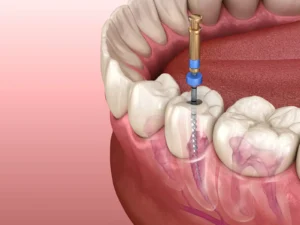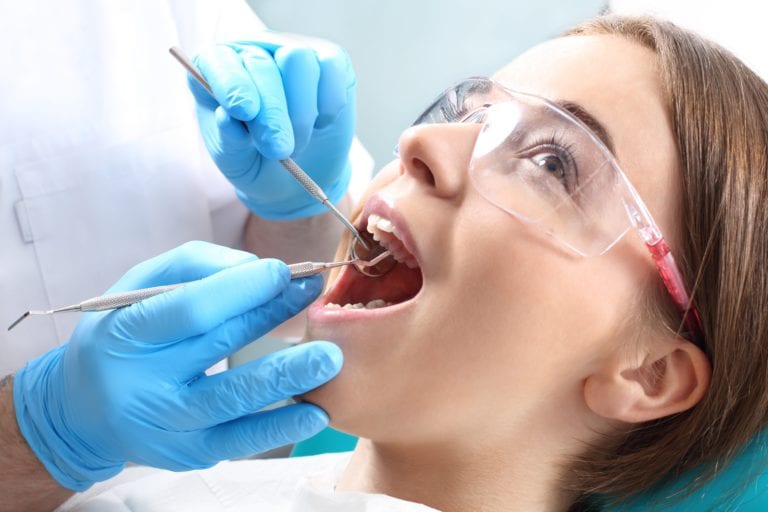Root Canals in Hamilton, ON
 Endodontics is a specialized field of dentistry focused on the intricate structures within the teeth, including the tooth pulp, tissues, nerves, and blood vessels.
Endodontics is a specialized field of dentistry focused on the intricate structures within the teeth, including the tooth pulp, tissues, nerves, and blood vessels.
Endodontic treatment, commonly known as root canal therapy, is performed to preserve the natural tooth. Despite advancements in dental restorations, most dentists agree that nothing can fully replace the function and value of a healthy, natural tooth.
Here are some common causes of tooth damage that may require root canal therapy:
-
Bacterial infections: Oral bacteria are a leading cause of endodontic problems. Bacteria can invade the tooth pulp through tiny cracks caused by decay or injury, leading to inflammation, infection, and possibly an abscess.
-
Fractures and chips: When a significant portion of the tooth’s surface or crown detaches, the exposed pulp can cause intense pain and complications, often necessitating root canal treatment.
-
Cracks: Hairline cracks can develop in teeth due to trauma or excessive wear. These may not be visible during exams or on X-rays but can cause pain when chewing or exposed to temperature changes. If the crack extends to the nerve, root canal therapy may be needed.
-
Injuries: Trauma to the mouth can dislodge or luxate a tooth from its socket. In such cases, root canal therapy is often required to stabilize and save the tooth.
-
Tooth removal: If a tooth is knocked out of its socket, rinse it and attempt to place it back in. If this isn’t possible, store the tooth in a special dental solution or milk until you can seek emergency dental care. The tooth will be stabilized, and root canal therapy will be performed to save it.
What happens during an endodontic procedure?
First, a local anesthetic is administered, and a dental dam is placed to keep the area dry. An opening is made in the tooth’s surface, and the pulp is removed. The space is then cleaned, shaped, and filled with gutta-percha, a rubber-like, biocompatible material. Cement is applied to seal the root canals, and a temporary filling is used to restore functionality.
At the final visit, a permanent restoration or crown will be placed to complete the treatment.
Call our office today at (905) 575-4040 if you have any questions or would like to book an appointment.

